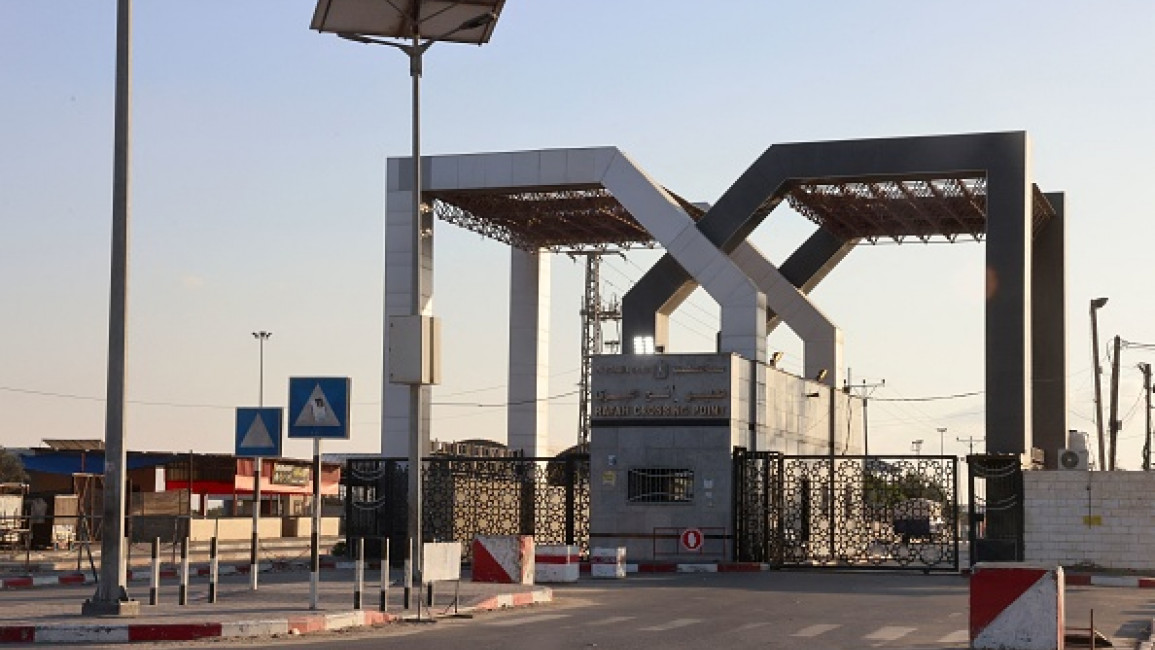Pressure on Gaza border alarms Egypt as Israeli strikes close Rafah crossing
Egypt on Tuesday moved to prevent a mass exodus from the besieged Gaza Strip into its Sinai Peninsula as Israeli bombardment prevented crossing at the Rafah border crossing, which is the Palestinian enclave's main exit point, Gaza officials and Egyptian security sources said.
Israel's deadly assault on Gaza has caused alarm in Egypt, which has urged Israel to provide safe passage for civilians from the enclave rather than encouraging them to flee southwest towards Sinai, two Egyptian security sources said.
Egyptian President Abdel Fattah al-Sisi said on Tuesday that the escalation in Gaza was "highly dangerous" and that Egypt was pursuing a negotiated solution to the violence with regional and international partners.
Sisi said that Egypt would not allow the issue to be settled at the expense of others, the state-run Middle East News Agency reported, in an apparent reference to the risk that Palestinians could be pushed into Sinai by Israel's indiscriminate bombardment of the Gaza Strip.
Egypt's military had taken up new positions close to the border and was running patrols to monitor the area, said Ahmed Salem of the Sinai Foundation for Human Rights.
Rafah is the sole possible crossing point into Sinai for Gaza's 2.3 million population. The rest of the strip is surrounded by the sea, and by Israel, which has announced a total siege of Gaza and could launch a ground offensive.
The passage of people and goods in and out of Gaza is strictly controlled under a blockade enforced by Israel, with Egyptian cooperation, since 2007.
This has restricted the import of essential goods, such as medicines and medical equipment and plunged tens of thousands of Palestinians into poverty.
Earlier on Tuesday, the Israeli military revised a recommendation by one of its spokespeople that Palestinians fleeing its air strikes in Gaza head to Egypt.
Israel has been pounding Gaza with the fiercest strikes in the 75-year history of its conflict with the Palestinians, following a massive Hamas incursion into Israel on Saturday which killed hundreds of Israelis.
Israeli strikes have so far killed 1,055 people in Gaza, according to Palestinian while Hamas's cross-border assault on Israel has killed at least 1,200.
Mediation role
Egypt, the first Arab country to make peace with Israel, has mediated between Israel and Palestinian factions during previous conflicts in Gaza and has worked to prevent further escalation in the current fighting.
Gaza's Hamas-run Interior Ministry said bombardments on both Monday and Tuesday had hit an entry gate on the Palestinian side of the Rafah crossing. The crossing was also closed from the Egyptian side and Palestinians planning to travel to Gaza retreated to north Sinai's main city of Al Arish, Egyptian sources said.
The latest strike follows a similar incident on Monday that partially disrupted operations at the border, though Egyptian security sources said access for registered travellers and humanitarian activity had been restored by Tuesday morning.
On Monday, about 800 people left Gaza through the Rafah crossing and about 500 people entered, though the crossing was closed for the movement of goods, according to the United Nations humanitarian office.
A rare occasion in media history where a Palestinian has been able to speak freely on live TV without being interrupted. Mustafa Barghouti, gen. sec. of the Palestinian National Initiative, gave evidence-based replies on Palestine during a live CNN interview that has gone viral: pic.twitter.com/nkWeyhPlBX
— The New Arab (@The_NewArab) October 9, 2023
North Sinai's governor met local authorities on Monday to plan for any crises resulting from events in Gaza, his office said. So far, there has been no sign of mass gatherings of Palestinians at the Rafah crossing, with only scheduled departures proceeding until Tuesday.
Security in the area around Rafah is also of concern to Egypt as an Islamic State-related insurgency has raged in the peninsula's north for over a decade.
(Reuters and The New Arab Staff)



